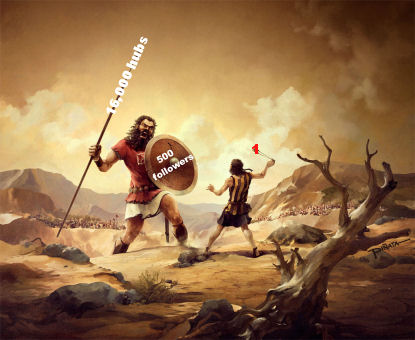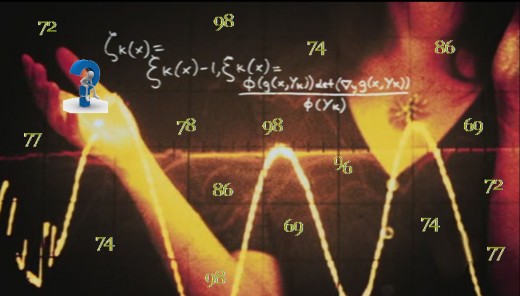Hub scores - How do they calculate that one?
Page Scores and Hub Scores
Much has been written on the ambiguous scoring mechanism employed by hubpages to rate our output and why it changes quicker and less predictably than the Scottish weather. While people have made a fair stab at the subject I’m not convinced they have the full story. There is even a FAQ where Hubpages themselves have conveniently skated over what they actually derive the hubscore from, I suppose to stop people playing the system but still incomplete.
Every time I look at my stats, it changes, a hub that has received very few hits (five in its life) vying for 3rd place with one of my most successful scribbling. In terms of pure page views, the highest scored hub currently has about 20 times less views (5%) 2nd ranked has 30 times less (3%) and 3rd ranked, a staggering 400 times less (0.25%). Why should this be? Surely the higher the readership, the higher the score. Affected certainly by other factors but principally that should be it. I would say that this is actually the case, but not for the most obvious reason.

The Goliath Hubber
I think hub pages have, in some way attempted to include an articles worth in addition to its success. A hubber may have 220 hubs and a following of 500 other hubbers, but that does not mean they have better articles than my 20 – just more. Should you account for this? How can you account for this?
Yes, you should, otherwise that one inspirational, stunning piece of work could be overshadowed by a million surplus words just because it stands alone. How can it be done? Peer review would seem to be the only true way but that relies on active readership rather than passive, too much effort by half! So perhaps Hubpages has had a fair stab at putting in a David and Goliath scoring system.
So why does Goliath benefit from their 5000 articles? More hubs and more followers give you more hits to your overall hubsite per day. Getting traffic to your articles breeds higher traffic. It is a great positive feedback loop. The more traffic you get the higher up the Google search engine hierarchy you move. The higher you are…the more likely you are to get hits from search…hence…more traffic!
If you’re lucky or what you’ve written is really good, you get viral popularity. Something that gets 50 million hits in a day will get traffic bred from that event – people are curious – even if they have no particular interest in the subject. So what do I think drives individual article hub scores? I have seen everything from readership stats (number of views, length of time on page etc) to the search method, whether it was organic or hub based, to the length of the article postulated as contributors to the score, and whether they are or not, they are not the whole story.
Items like word count and publish date are static, they don’t really move. Although they may be in the formula, they don’t contribute overly to the giant fluctuations that give a hub of 5 hits a score of 84. All the other items, where the viewer came from, how long they stayed on the page, and of course, how many people visit the page are all products of your traffic. So yes, your traffic probably does govern your hub score but in my view, not directly.

Numbers, Numb-ers and Numb3rs
The Formula
If the correlation between high levels of traffic and hub score was direct, my hub with 100 hits a day would score much better than the one with 5 hits in the month since it has been published. On the other hand…if the score is a calculation, say today’s number of hits, divided by yesterday’s hits…you score could easily drop while your traffic remains high. Hence my best hub had 100 hits yesterday but only 50 today, its calculation is 50/100 = ½. The worst hub had 1 hit today and none yesterday so 1/0, while being somewhat paradoxical, is still pretty close to infinity – and that’s a lot larger than one half. So in conclusion, my wandering mind leads me to think that Hubpages somehow rates an article against itself.
Now I might have got that completely wrong and even if its not, as I write this I can just hear Charlie from Numb3rs in voice over mode talking about antelopes running across the plains, but it kind of works as a basic theory. I haven’t accounted for how long it counts hits for, nor how long a previous score influences the current one for but I’m happy as Larry for coming up with that all by myself!








